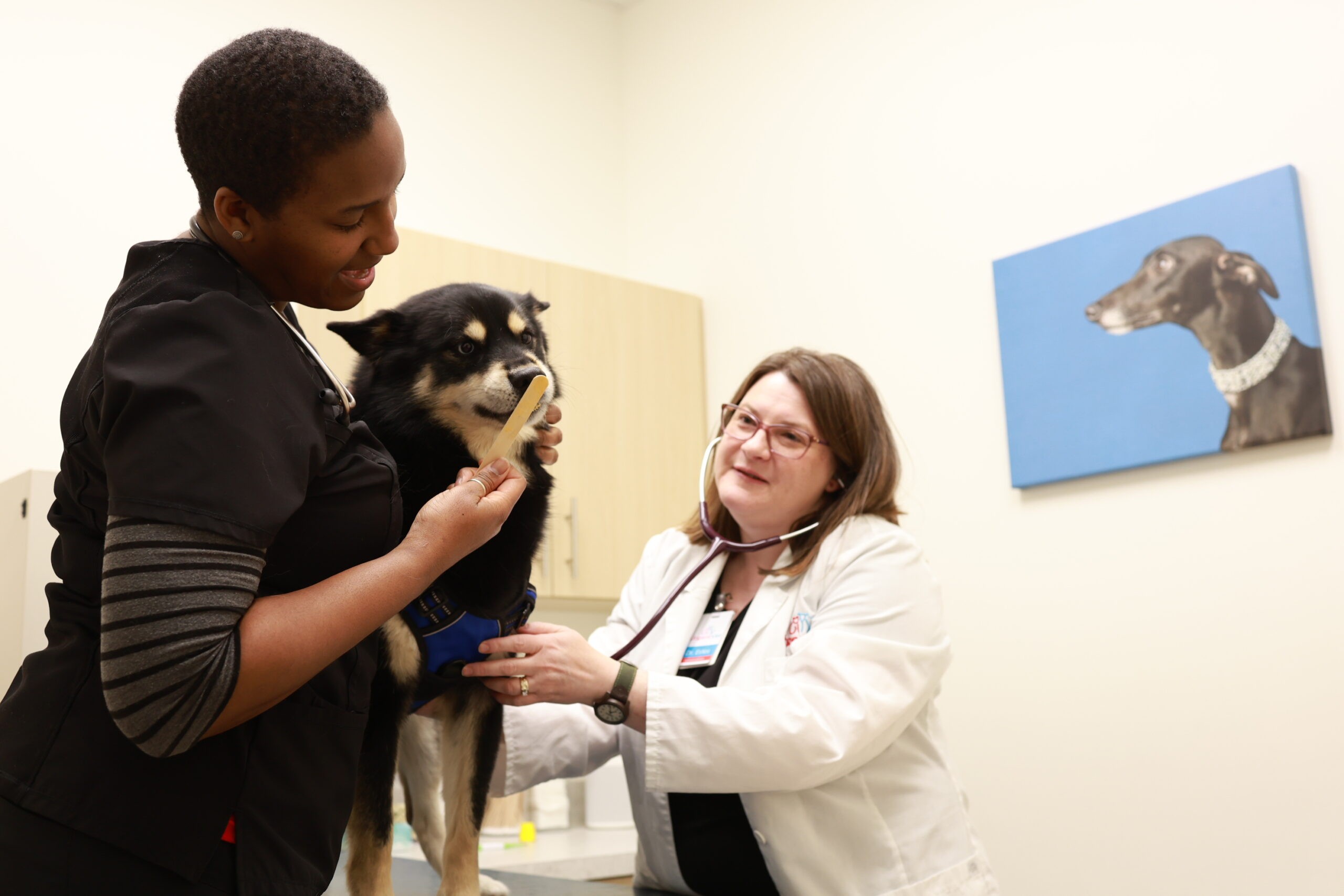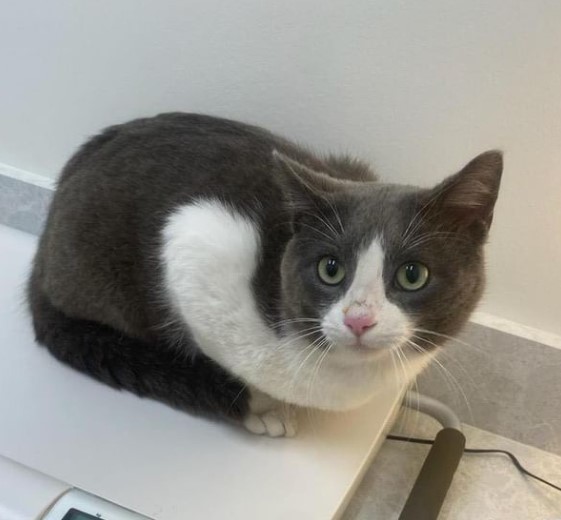Do you get nervous going to the doctor? Do you ever get nauseous riding in the car? Just like us, our furry friends can experience the same emotions! If your pet becomes a nervous wreck when they go to the veterinary hospital, they’re not alone—pet owners commonly avoid seeking regular wellness care because of their pet’s veterinary phobia. Unfortunately, this can lead to serious health consequences that could shorten your pet’s life.
Here are five reasons why your pet might be scared at the veterinary hospital, plus potential solutions for helping them overcome their fears.
#1: Travel anxiety and pets
Aside from mobile veterinary services, most veterinary visits require that pets leave the comfort and safety of home. Traveling, including the preparation (e.g., grabbing your pet’s leash or carrier), loading and securing your pet (e.g., in their carrier, crate, or seat belt), and the form of transportation (e.g., vehicle, train, or bus) commonly causes anxiety in dogs and cats.
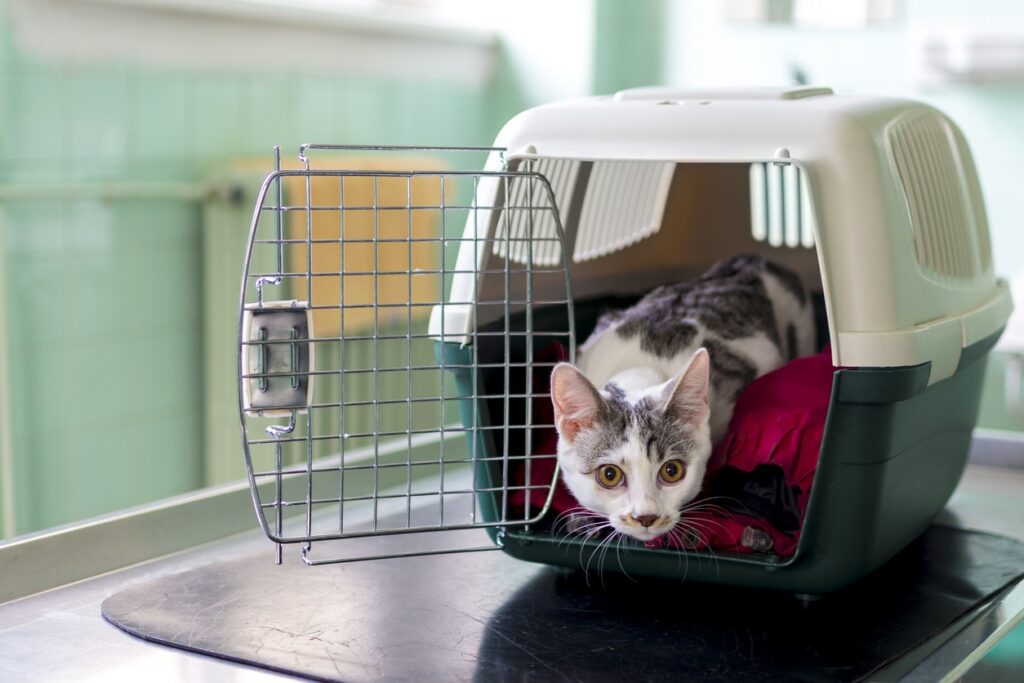
Prevent such anxiety by introducing travel during your pet’s early life. Overcome your pet’s fears by taking them on short trips to fun, non-veterinary destinations (e.g., the park, pet store, a friend’s house). Also, consult with your regular veterinarian about medication that will reduce your pet’s anxiety and combat motion sickness.
#2: Pets may be painful or sick
Pets, like people, experience fear, stress, and anxiety when they’re in pain or feeling unwell. This stress is heightened by the fact that our pets can’t understand what’s happening to their bodies or that veterinary treatment will help them feel better.
Although quelling this fear can be difficult, visiting the veterinarian while your pet is healthy (e.g., yearly wellness or preventive care visits) can help them positively associate with the experience. But, if simple routine care triggers your pet, start simply visiting the veterinary hospital lobby or parking lot and asking the staff to feed your pet treats. These non-medical appointments—known as happy visits—can help rebuild your pet’s confidence in the veterinary environment.
#3: Veterinary hospitals do not smell or sound familiar
Since we are predominantly visual, we tend to take other sensory experiences for granted. But, our pets experience the world through their heightened olfactory and auditory senses which, unfortunately, means that what we perceive as a mildly busy but clean veterinary hospital can overpower our pets, because they detect the other pets’ apprehension and illness through their smell, excrement, or vocalizations (e.g., howling, growling, or crying).
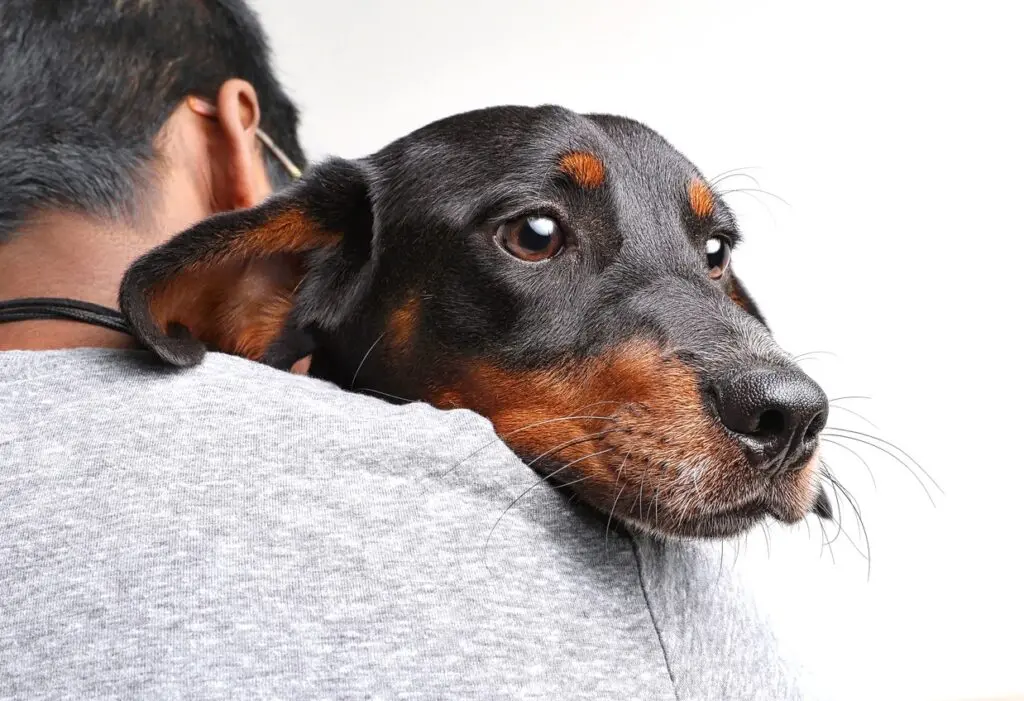
While you cannot dampen your pet’s incredible senses, you can decrease their stress by applying calming pheromones (e.g., Adaptil for dogs and Feliway for cats) to a bandana or a towel placed in your pet’s crate. Pheromones mimic natural chemical messengers pets use to communicate security, comfort, and contentment, and may distract your pet from their surroundings.
#4: Your nervous energy may be transferred to your pet
Our pets are incredibly perceptive to our emotions. If you’re nervous about your pet’s veterinary visit, worried about their health, or embarrassed by their misbehavior, you’re probably unconsciously conveying your feelings to your pet, who will adopt similar emotions.
Set a good example for your pet and show them they have nothing to worry about by preparing for your pet’s visit. This involves:
- Scheduling — Make the appointment for a day when you have nowhere else to go.
- Questioning — Make a list of questions to ask the veterinarian during the appointment.
- Arriving early — This can prevent you from feeling rushed.
- Waiting — Ask if you can wait with your pet in the car until an exam room is ready.
- Distracting — Bring positive distractions, such as treats or toys, for your pet.
- Staying calm — Practice controlled breathing or briefly meditate while you wait for the veterinarian.
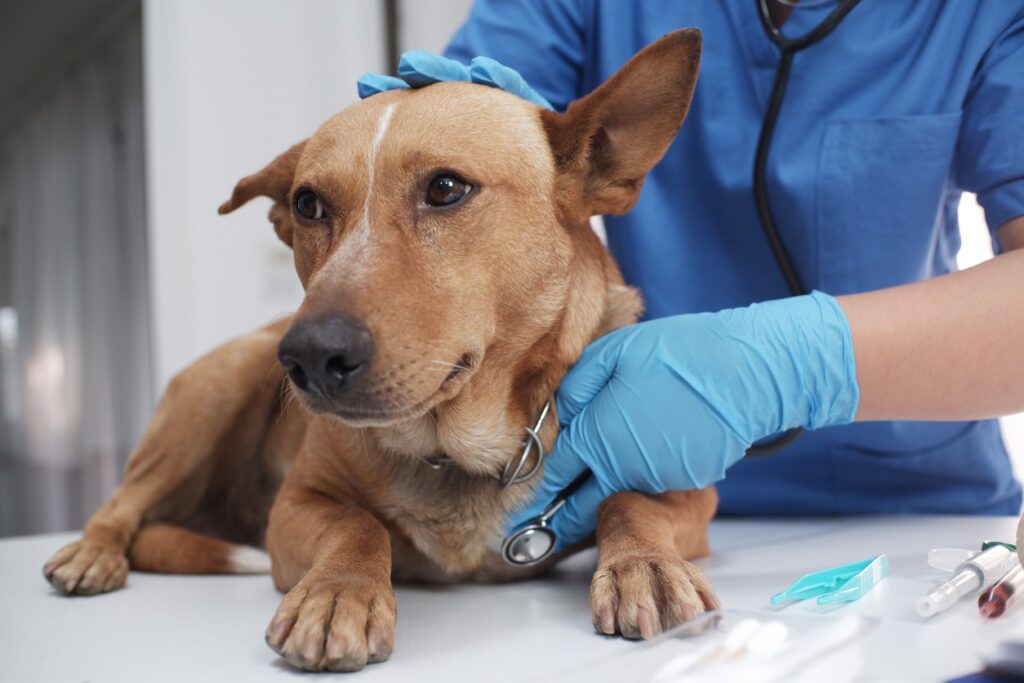
#5: Previous trauma or negative experiences at the veterinary hospital
Unpleasant, painful, or frightening experiences can be lasting, negative memories for pets. Although people tend to dwell on obvious serious events, such as staying at the hospital after being hit by a car or being poked with a needle, predicting events that trigger stress in our pets is impossible. We should not assume that their emotions are proportional to the initial event (i.e., a big fear must be triggered by an exceptionally traumatic event, yet their fear may be associated with a minor, innocent event). All we can do is acknowledge the pet’s emotional state and help them cope with or overcome their anxiety.
Working closely with a Fear Free® Certified Veterinary Practice is the best way to address your pet’s significant veterinary fear, anxiety, and stress. Fear Free®professionals and practices use low-stress interaction and handling techniques that care for your pet’s physical and emotional wellbeing. Depending on your pet’s veterinary phobia, Fear Free® veterinarians and veterinary technicians can teach strategies, such as medication, positive exposures, low-stress handling, and desensitization and counterconditioning, that will help ease your pet’s emotional distress.
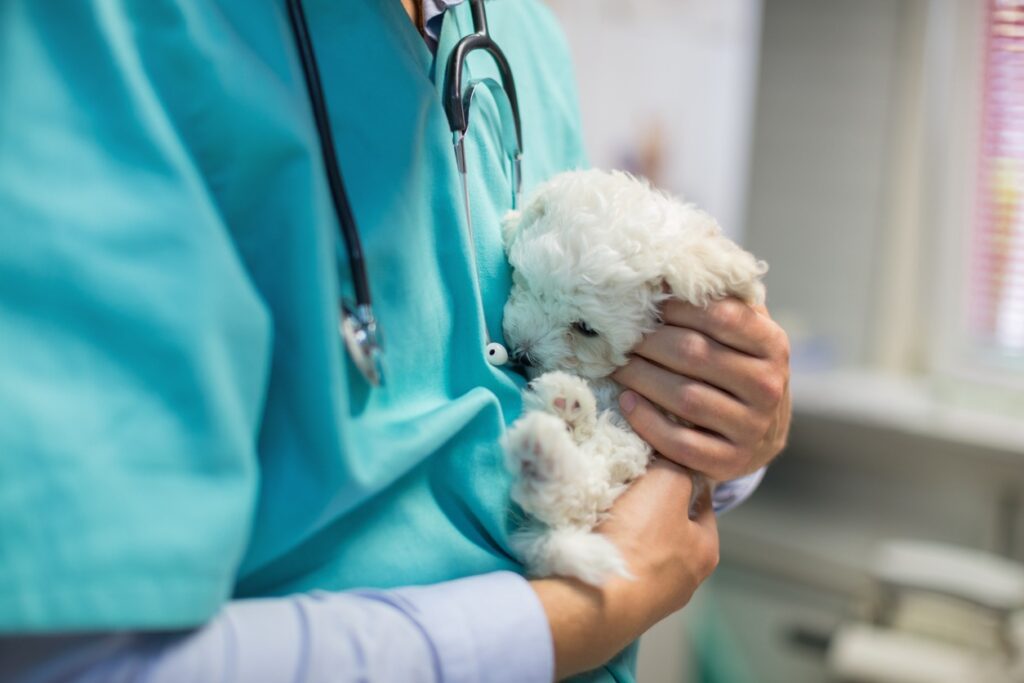
Fearing the unknown: When your scared pet needs unexpected care
At UrgentVet, we know that unexpected pet accidents, illnesses, and injuries can trigger intense fear and worry at both ends of the leash—especially when your regular veterinary hospital is closed. When your pet needs urgent veterinary attention, staying calm and logical is nearly impossible—that’s why UrgentVet teams are Fear Free ®and Cat Friendly Certified, and we will provide compassionate and gentle care when your pet needs it most.
When your pet can’t wait to feel better, contact an UrgentVet location near you or check-in online.
